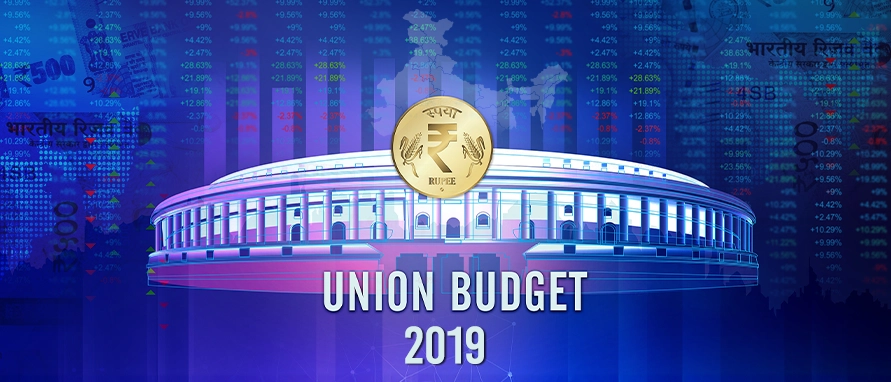There are several expectations from the upcoming union budget regarding income tax relief. Leading financial analysts have predicted that the new financial budget will be pro-growth and tax sops will act as a stimulus to an economy that has slowed sharply this year. Here’s what to expect from the Union Budget this year:-
- Budget 2019 – Higher Income Tax Exemption Limit
The tax exemption limit for individuals may be raised to Rs. 3 Lakh of their annual income, up from the current Rs. 2.5 Lakh. In case the proposed tax move is implemented, it will put at least Rs. 2,500 more in the hands of taxpayers.
- Budget 2019 – Higher tax relief on NPS withdrawal
Last year, the Indian Government hiked the tax exemption limit for lump sum withdrawal on exit from National Pension Scheme (NPS) to 60%. Currently, 20% of the accumulated corpus withdrawn by NPS subscribers is taxable. With the upcoming budget, the entire corpus is expected to be completely exempt from tax. If this change is implemented, NPS will get the exempt, exempt, and exempt or EEE status.
- Budget 2019 – Higher Section 80C and Section 80D Deduction Limit
In order to encourage savings and investments, the finance ministry is expected to raise the tax exemption limit for Section 80C of the Income Tax law. Currently, the limit is set at Rs. 1.5 lakh. Moreover, given the ever-rising inflation levels and steep medical expenses, financial policymakers may consider increasing the deduction under Section 80D to Rs. 35,000 from the current Rs. 25,000. This move will ensure the affordability and accessibility of medical treatment to all classes of patients.
- Budget 2019 – Re-Introduction of Tax-Free Bonds
The upcoming budget may bring back tax-free bonds to raise capital by government entities for infrastructure projects. Unlike regular bonds, interest earned on tax-free bonds is exempt from tax and has a long-term maturity of typically ten years or more.
- Budget 2019 – Higher LTCG limit
The government may increase the threshold limit of LTCG (Long-Term Capital Gains) from the current limit of Rs. 1 Lakh per financial year for the sale of listed equity shares and units of equity-oriented mutual funds. The Finance Act, 2018 introduced new changes to the capital gains taxation regime wherein tax was levied on long-term capital gains (LTCG) exceeding Rs. 1 lakh, which were fully exempted previously. These changes have been effective from 1st February 2019.
The major focus of the union budget 2019 is likely to be on boosting domestic consumption, addressing the rural crisis, and supporting the budding micro, small and medium enterprises. Overall, the union budget is expected to bring about some big changes in the national economy. What remains to be seen is whether Finance Minister Sitharaman will be able to deliver on the promises made by the newly formed government.
Post the Modi Government’s re-election, it remains to be seen whether highly publicized campaigns like Start Up India, Make in India, PMJAY, PMAY, Digital India, and Swachh Bharat Abhiyan have brought about any real improvement in the day-to-day lives of Indian citizens. The economy is showing signs of slowing down and wealth creation in the face of inflation remains a big challenge.
How has the Indian economy fared in 2019? What new regulations will be introduced by our Government to encourage economic growth? Will the latest fiscal policy make foreign investment in domestic businesses easy? Will the revised tax rates help the common man to keep most of his income? And most importantly, can India become a $5 trillion economy by 2025? All this and more will be announced by our Finance Minister during Budget 2020, to be held on Saturday, 1st February.
Bajaj Markets, from the house of Bajaj Finserv, is an exclusive online supermarket for all your personal and financial needs. Loans, Insurance, Investments, and an exclusive EMI store, all under one roof – anytime, anywhere!















